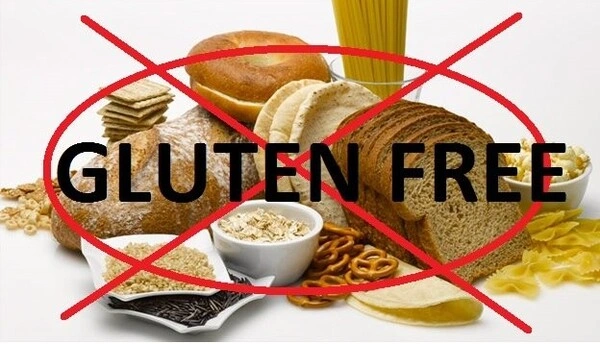Genetic protein diet

If you tested your DNA with a personal genomics service like 23andMe, AncestryDNA, FamilyTreeDNA, MyHeritage or another testing company, you can learn more about your risk factors for hundreds of diseases. By clicking the button above ⬆️, you can upload your raw DNA data file and receive a personalized 250-page health report with research links that is the most comprehensive.
Incorporating protein into your diet can aid in weight loss, and maintaining a high protein diet can assist in weight maintenance. However, the effectiveness of a high protein diet for weight loss may differ among individuals.
Your DNA may be the reason.
The FTO gene has been linked to energy intake and obesity via genome-wide association studies (GWAS). Certain individuals possess genetic variations in this gene, which yield intriguing outcomes when compared across diets featuring distinct macronutrient profiles.
The association between the FTO gene and ghrelin regulation suggests that alterations to the FTO gene can directly impact your appetite.
The FTO gene interacts with amino acids, derived from dietary protein, thereby introducing protein into the equation. The FTO gene may serve as a potential link between protein and hunger.
In addition, various genes including the TANK gene, the MAML3 gene, and the FGF21 gene were discovered to be associated with heightened protein intake. However, similar to the FTO gene, the precise mechanism underlying these associations remains unclear.
The FTO gene has been extensively studied in relation to obesity and weight loss. Its role is to produce a protein that affects gene expression and protein synthesis. Research indicates that individuals with specific variants of this gene typically have a higher BMI, body fat percentage, and appetite. However, the effects of this gene can be mitigated by protein intake for weight loss. Studies have shown that high-protein diets are more effective in reducing body weight and fat in people with certain versions of the FTO gene.
The TCF7L2 gene plays a crucial role in controlling the expression of genes that are responsible for glucose metabolism and insulin secretion. Studies indicate that individuals with specific variants of this gene are more likely to have elevated BMI, waist circumference, fasting glucose levels, and insulin resistance. However, the effects of this gene can be mitigated by adopting a high-protein diet to shed excess weight. Research has demonstrated that individuals with certain versions of the TCF7L2 gene can experience significant reductions in body weight, fat mass, waist circumference, fasting glucose levels, and insulin resistance by following a high-protein diet.
The ADIPOQ gene plays a crucial role in producing a protein hormone that controls the metabolism of glucose and fat. Studies indicate that individuals with specific variants of this gene typically exhibit reduced levels of the hormone, higher BMI, body fat percentage, waist circumference, and inflammation. However, weight loss through protein intake can also impact these effects. Research has demonstrated that high-protein diets are more effective in elevating hormone levels and decreasing body weight, fat mass, waist circumference, and inflammation in people with certain ADIPOQ gene variants.
The TFAP2B gene is crucial in producing the AP-2B transcription factor, which regulates the function of multiple genes. Notably, a specific SNP called rs987237 has a significant impact on the relationship between protein intake and weight changes. Those with the A allele of this SNP within TFAP2B have a lower risk of obesity, while those with the G allele have a higher risk. However, a protein-rich diet can help individuals with either genetic variant maintain their current weight and prevent further weight gain.
Possessing any of these genetic variations may result in a heightened desire for protein. Nevertheless, this does not necessarily imply that you must adopt a high-protein diet or increase your intake of red meat. Rather, it suggests that your genetic makeup may be influencing your protein cravings, rather than your body's actual requirements. However, it is important to note that possessing these genes does not always guarantee a propensity for seeking out protein.
Follow the link of the selected polymorphism to read a brief description of how the selected polymorphism affects High-protein diet and see a list of existing studies.
SNP polymorphisms related to the topic High-protein diet:
| rs1558902 | Variants in the FTO gene are associated with increased body mass index, obesity and diabetes. A high-protein diet was more beneficial for people with risk allele A. These findings suggest significant genetic heterogeneity in weight loss in response to dietary interventions. |
| rs1799883 | This genotype is associated with increased sensitivity to both saturated fat and refined carbohydrates. Thus, allele A impairs the effectiveness of both low-carbohydrate and low-fat diets. |
| rs780094 | The GCKR rs780094 polymorphism is associated with increased fasting serum triacylglycerol, decreased fasting insulinaemia and reduced risk of type 2 diabetes. A diet restricting carbohydrates and increasing protein is particularly effective for carriers of the T risk allele. |
| rs987237 | The AA genotype of the TFAP2B gene was associated with greater weight loss on a low-fat, high-protein diet. |
| rs12785878 | Has been associated with serum vitamin D concentrations in several studies. The T risk allele is associated with greater reductions in insulin and HOMA-IR levels in response to a high-protein diet. |
| rs838133 | FGF21 is a sugar-inducible hormone associated with the consumption and preference for sweets in humans. For carriers of the risk allele A, a diet high in protein and limiting carbohydrates has an effective response. |
| rs1058046 | According to research, a high-protein diet is more effective. |
| rs4994 | A beta-3-adrenergic receptor mutation is associated with visceral obesity but lowers serum triglyceride levels. Carriers of the G allele necessarily need strength training to lose weight and keep the body in good shape. |
| rs4998 | |
| rs445551 | |
| rs579459 | |
| rs668056 | |
| rs1229984 | |
| rs1603977 | |
| rs2391331 | |
| rs2391333 | |
| rs2932976 | |
| rs2970848 | |
| rs2970853 | |
| rs4076128 | |
| rs5755279 | |
| rs6601299 | |
| rs7760212 | |
| rs7833349 | |
| rs9512706 | |
| rs10507391 | |
| rs11629199 | |
| rs11940694 | |
| rs12402440 | |
| rs12405096 | |
| rs12715065 | |
| rs28712821 | |
| rs34050136 | |
| rs59756727 | |
| rs74565497 | |
| rs117301188 | |
About The Author
Li DaliLi Dali, a National Foundation for Outstanding Youth Fund recipient, is a researcher at the School of Life Sciences in East China Normal University. He earned his PhD in genetics from Hunan Normal University in 2007 and conducted collaborative research at Texas A&M University during his doctoral studies. Li Dali and his team have optimized and innovated gene editing technology, leading to the establishment of a world-class system for constructing gene editing disease models.


